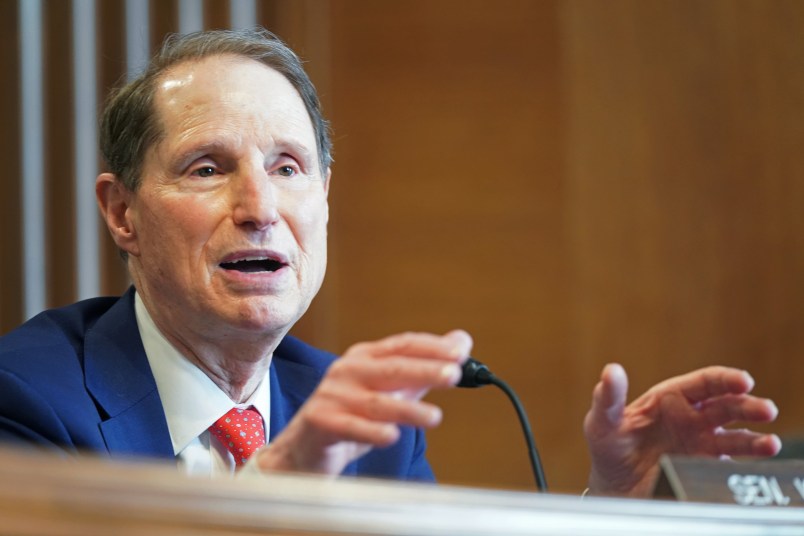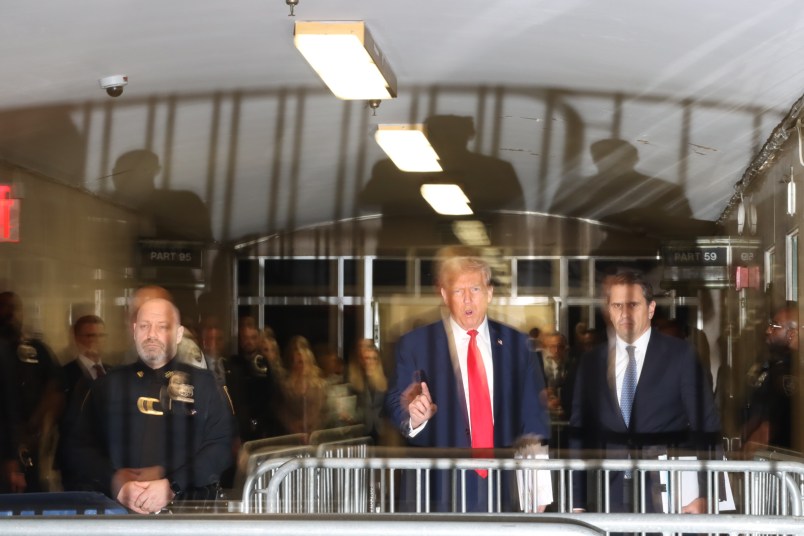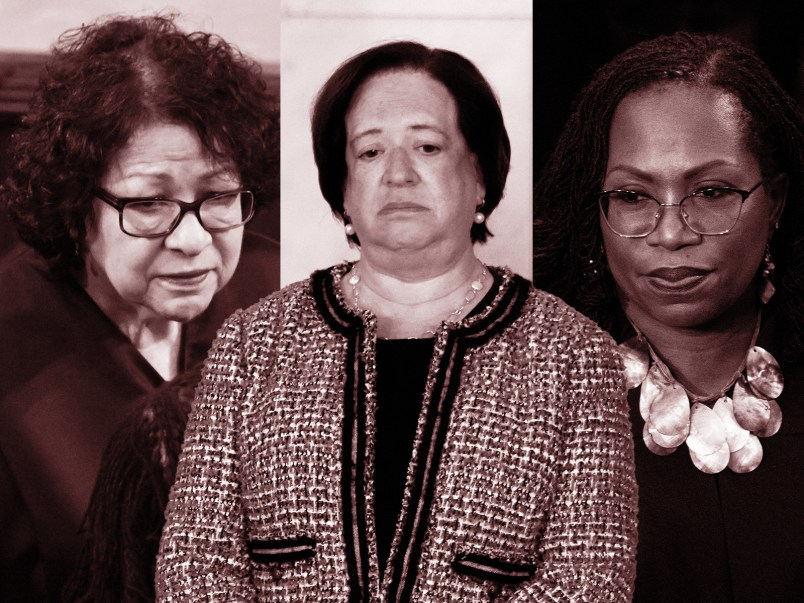After the Senate parliamentarian dashed Democrats’ hopes of crowbarring a $15 federal minimum wage into the COVID-19 relief package Thursday night, members and their staffs have been scrambling to figure out a way around the ruling.
Senators Ron Wyden (D-OR) and Bernie Sanders (D-VT), who chair the Senate Finance and Budget Committees respectively, have proposed a backdoor approach that the parliamentarian might approve of, one that would involve changing tax policy.
Wyden put out a statement saying that his proposal would impose a 5 percent penalty on the payrolls of big corporations if workers earned less than a certain amount. He also called for a tax credit equal to up to 25 percent of wages for small businesses that pay their workers higher wages. Many of the specific numbers, however, have not yet been made public.
While the proposal is a good faith effort to salvage raising the minimum wage in the current political landscape — it seems unlikely that a standalone bill to raise the minimum wage would attract the 60 Senate votes needed to overcome a filibuster — experts on and off the Hill are already expressing concerns about whether Plan B would be a fitting replacement.
“Proponents of this approach would like nothing better than if everyone paid at least the minimum wage, but we fully expect that some employers will still rather pay the tax,” one Democratic aide told TPM.
The workaround simply wouldn’t reach as many people as raising the minimum wage wholesale. The Washington Post noted research by Arindrajit Dube, professor of economics at the University of Massachusetts, Amherst, who found that only 20 percent of minimum wage workers in Oregon are employed by firms with more than 500 employees.
“There must be penalties for all businesses, regardless of size,” said Kayla Blado of the left-leaning Economic Policy Institute.
The proposal, while still being written and negotiated, only currently punishes “big corporations” that don’t raise the wage, a term that is as yet undefined. It’s worded that way for a reason: Republicans and Democratic opponents of raising the wage consistently mention the strain it would put on small businesses. Making the tax penalty universal would likely alienate some senators — and Democrats need every member in line to pass the package on a simple majority without GOP help.
It also likely wouldn’t fully address “the overdue issue of eliminating the subminimum wage and tipped minimum wage,” said Lindsay Owens, interim executive director of the Groundwork Collaborative and former senior economic policy adviser to Senator Elizabeth Warren. She advocates for putting a standalone minimum wage bill on the floor, which would force senators opposed to vote against the popular proposal.
But a standalone bill would also be far from a sure bet.
“There is a much higher probability of success working through the tax code than directly through the Fair Labor Standards Act,” the Democratic aide said.
Ultimately, the workaround may be less of a political payoff for Democrats than raising the minimum wage would be.
“A problem with this is that Americans tend to see money earned as better than money that is refunded through taxes etc,” Stephanie Aaronson, vice president and director of the Economic Studies program at the Brookings Institution, told TPM. “And so getting a larger tax credit might not be as valuable to people as just getting a higher wage.”
While Democrats are trying to pass substantive policy, they also want accomplishments to run on in 2022. Raising the minimum wage is easier to tout than a backdoor tax credit that might encourage employers to boost wages.
Wyden’s proposal would still have to make it past the parliamentarian to get into the package, something about which Democrats are projecting certainty. “We are confident this approach would comply with the rules,” one Democratic aide to the Senate Finance Committee told TPM.
For her part, House Speaker Nancy Pelosi (D-CA) is keeping the $15 minimum wage in the House version of the bill, meaning it’ll have to be stripped out of its Senate counterpart later. But the progressive caucus in the House, many members of which say even a $15 minimum wage isn’t high enough, may pose a problem. Democrats have a slim majority in the House, and if progressives turn against the bill with the workaround (or with nothing, if the parliamentarian rules against it), they could sink it.
Optics are probably on the side of the bill though — torpedoing a package stuffed with desperately needed COVID-19 aid would be a tough political pill for even a discontented lawmaker to swallow.










